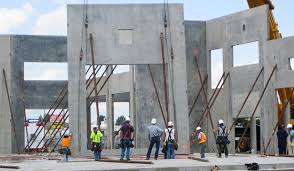 You have created your project’s baseline schedule and now you are starting the schedule management phase of the project. What do you do?
You have created your project’s baseline schedule and now you are starting the schedule management phase of the project. What do you do?
If you have not done so already, you need to establish a “schedule log”. I like to start my schedule log when I start development of the baseline schedule. This allows me to track my revisions and reasons for making them. The schedule log provides you with historic data for each revision or update to the schedule. Very handy.
If you have not done so already, set up schedule layouts and filters you plan to use. I also set these up during me schedule development, but often times the owner decides they want to use something other than what the schedule specifications require.
Each periodic update, save your schedule with progress only. This allows you to see what the progress update did to your schedule, save this snapshot. Then make any revisions to correct out-of-sequence, OOS relationships and model the revised plan to finish on schedule. You now have your updated and revised schedule ready for use.
Update the schedule periodically. Compare your progress with the most current previously accepted schedule and the baseline schedule. Look at how you’re tracking, how your actual durations are comparing to your scheduled original durations, and how your work sequence is actually progressing. Identify problem areas and trends and develop corrective action to recover time lost.
After you update the progress for your schedule, revise the schedule update to reflect your actual plan for execution. This doesn’t mean a complete change of sequence or addition of new work. This is simply to model adjustments you are going to need to make to maintain the scheduled completion date.
Major revisions to the schedule to dramatically re-sequence work or add/delete large pieces of work are handled differently. This will be part of a future post.
Managing the simple month to month schedule update process is pretty straightforward. Correcting the OOS is more involved and care should be taken to follow best practices. This is all part of the basic schedule management process.
However, when in doubt, seek out the advice of a professional planner and scheduler.
Please visit https://conschmanservices.com to learn more about basic schedule concepts.
Please visit my LinkedIn account to learn more about me.
Paul Epperson CCM, PMP, PSP, PMI-SP